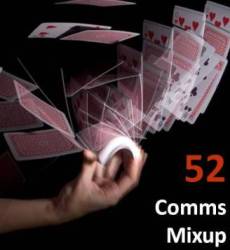Gotta love Costco. Where else can you buy 14 bags of chips while dodging shopping carts left and right? But if you make the right up-front investments, you don’t have to go back that often (Image credit: AleciaH http://www.flickr.com/photos/63227603@N08/6320194052/sizes/m/in/photostream/).
I love Costco. Well actually, I hate a lot of things about Costco. The people who act like they have never pushed a shopping cart in their lives. Having to show my card when I come in and get my receipt marked with an oversized Sharpie when I leave. Hello…I’m trying to give you my money! The fact that getting into and out of the parking lot sometimes takes longer than the actual time I spent in the store.
But besides that, I love the premise of Costco. And here’s why. You get rewarded for an up-front investment. You spend more than you’d like while you’re there. But then you don’t have to go back for a long time. Because no one in their right mind can use paper towels or trash bags that fast. Or drink that much coffee. Is it cheaper and easier to get granola bars at the grocery store? Sure. But I walk out of Costco with 48 of them. You grocery store shoppers are back at the store doing the whole thing over again once your 8 bars are gone. Like a week later.
I’m working with a client I have a ton of respect for right now. Because they have taken the Costco approach to onboarding — spent a lot of money up front on research and analysis to make sure we save time (and money) when it comes to actually launching the product we’re launching. If I had a nickel for every time a company wants to just start “doing PR” without any real data or insights or for every time I saw measurement get the short end of the stick on a budget (when it’s actually on the budget), well, I’d have a lot of nickels.
Look, I’m a guy. And I’ve been known to be cheap. Stereotypes exist for a reason. So there have been many times where my wife and I are at the store — usually Costco or Whole Foods — and she asks if we need something like bananas. And I’ve said “no, we don’t really need those; we have some at home.” And then two days later, after I ate the two remaining bananas, I’ve been back at the store. And I end up wasting more time and money in the long run than if I just would have made a list up front and bought in bulk.
Think about what happens when you have data at your disposal:
- The research tells a story.
- You can start to draw insights from what it’s telling you.
- But most important, you don’t waste time guessing which direction to go; the data is your GPS.
And what happens when you try and drive somewhere you’ve never been before without asking for directions? As much as it pains me to admit, what happens to me is that I have eventually have to go back and start over after I get lost…which usually means turning to my Google Maps app. Where would we be without Google?
As communications professionals, we need to take more responsibility for understanding the business before we start telling the story. And we need to counsel clients that a large investment up front can help avoid a larger investment over time.
So next time a client says they can’t afford research or measurement, ask them where they shop for groceries. And then talk to them about Costco. Because the only thing that sucks worse than having to stop by the store to buy toilet paper is having to stop there again just a few days later to buy more.






August 22, 2012
Measurement